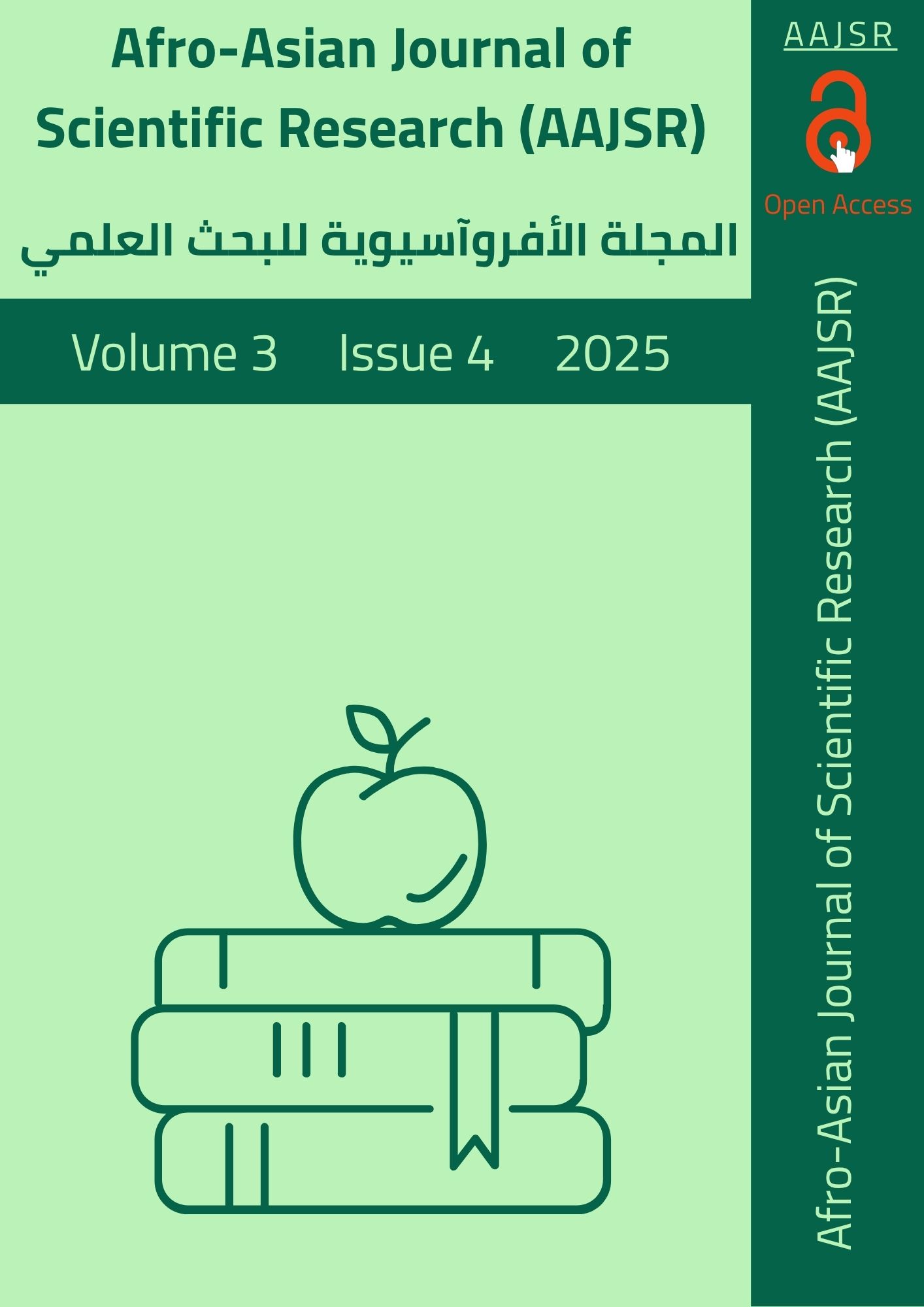Investigation of Heavy Metals Levels in Thymus Vulgaris Collected from Two Cities in Libya
Keywords:
Heavy metals, Medicinal plants, Thymus vulgaris, LibyaAbstract
Thymus Vulgaris is an indigenous plant in Libya, and it is widely used for its medicinal properties. There is a growing concern that this plant may be contaminated with heavy metals. This study aimed to determine the levels of eleven heavy metals (As, Ba, Cd, Cr, Cu, Fe, Mn, Ni, Pb, Sr, Zn) in Thymus Vulgaris growing in two Libyan cities: Gharyan and Qasar Ben Ghesheer. Samples of the aerial section of the plant (leaves and stems) were collected and digested using cold and hot digestion methods. The digested contents were analyzed by inductively coupled plasma mass spectrometry (ICP-MS). The mean and standard deviation were computed. The mean levels of heavy metals were compared to a set of acceptable limits for these elements. All heavy metals were detected in all samples in both cities and in both plant parts. Overall, only three heavy metals, Barium (Ba =18.38 mg kg-1), Lead (Pb= 14.63mg kg-1), Strontium (Sr= 75.35mg kg-1), exceeded the acceptable limits. The levels of these contaminants varied significantly between the two cities and the two plant parts, with Pb being notably higher in Gharyan and Sr higher in the stems. The plants in both cities are contaminated by heavy metals. Although most heavy metals were within acceptable levels, their long half-life (up to 30 years) makes them easily accumulated in the human body, posing a risk, especially for those individuals who use this plant for extended periods. To reduce the impact of pollution on medicinal plants strict regulations should be applied, and close monitoring is necessary.
.





